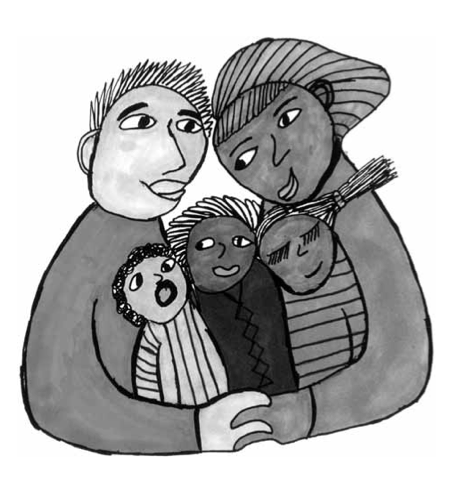Ashanti Bryant has previously volunteered and worked with LGBTQ+ organizations, and most recently worked at an educational institution geared towards uplifting gifted low-income boys to excel. She is committed to working with teams that help vulnerable communities and dismantle oppressive systems. As the Program Assistant at Rise, Ashanti manages administrative tasks and works closely with our parent leaders to help build technical and communication capacities. Ashanti is passionate about Rise because she believes that the family … Read More
Uncategorized
Genevieve Saavedra Dalton Parker, Development Director
January 04, 2021 by
As the development director, Genevieve works to fund Rise programs and operations. They work with the Rise staff and board to apply for funding, build relationships with supporters and organize events to mobilize support for parent power.
Genevieve is a critical adoption scholar, activist, and organizer with a passion for and commitment to ensuring support and resources flow toward people impacted by the child welfare system. They are a Masters student at The Graduate Center, CUNY … Read More
Jeanette Vega, Co-Executive Director
October 09, 2020 by
Jeanette coordinates Rise’s policy impact through her role in advocacy collaborations and on NYC and statewide tasks forces and through public speaking and media. Jeanette has played a key role in developing Rise’s strategic plan and shift to community organizing, as well as Rise’s major programs since 2019: the Rise & Shine leadership training program for parents, training for Parent Advocates, and our Reunification Collaborative and TIPS approach to ensuring that parents have the information … Read More
Abolition Retreat Pre-Work
September 30, 2020 by
Social-Identity-Reflection-WorksheetDownload
Locating-Oneself-Prework-ReflectionDownload
Supporting Families of Color: How Racial and Complex Trauma Affect Parents of Color Navigating Family Court During the Time of COVID and Beyond — A Report by Tricia Stephens, LCSW-R, Ph.D.
June 24, 2020 by
This report by Tricia Stephens, LCSW-R, Ph.D. is intended to provide family court officers and child welfare professionals who engage with child welfare involved (CWI) parents, introductory knowledge on the trauma-informed approach. Readers will be introduced to the importance of using the trauma-informed approach in their work with CWI parents, with a focus on the impact that language has on the way in which CWI parents are depicted and responded to in the courtroom. Definitions of key terms are provided first, followed by an overview of the trauma-informed approach and its application to working with CWI parents. Since the onset of the COVID-19 pandemic, this report has been updated to include recommendations for trauma-informed practices that best support families during a period of collective/shared trauma. Then the section titled, “What parents want you to know”, provides direct input from parents on their experiences, needs and perspectives. Finally, a composite vignette which compares traditional language to trauma-informed language is presented.

